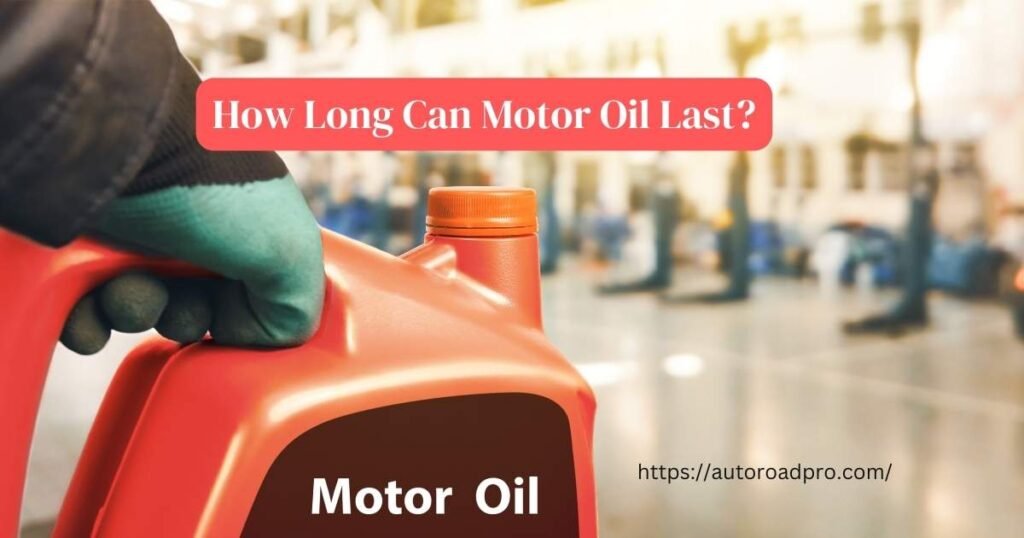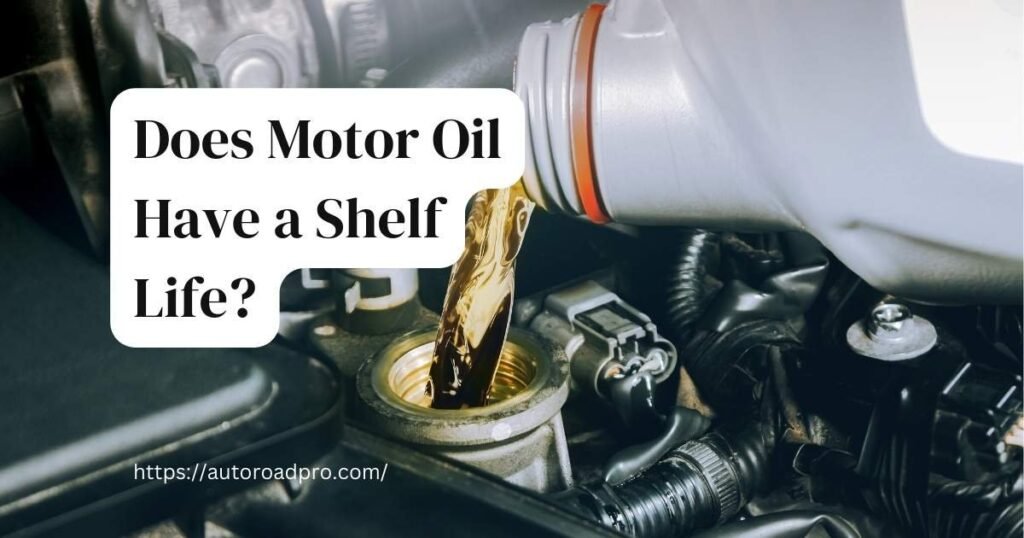As an auto enthusiast who’s been around the block (and the racetrack) a few times, I’ve learned the importance of treating your car right. Regular maintenance is key, and that includes using good quality motor oil.
But what about that oil sitting on the shelf – does it have a shelf life? Can it go bad? Buckle up, gearheads, because we’re diving deep into the world of motor oil shelf life!
Motor oil does indeed have a shelf life. It can go bad. Keeping your car running smoothly means using oil that’s in good condition.
Always check the expiration date before you use it. Remember, good oil keeps your engine happy!
Table of Contents
Does Motor Oil Have a Shelf Life or Expire Date?
Yes, motor oil does have a shelf life. However, you won’t usually find an expiration date on motor oil containers. Instead, the quality of the oil gradually gets worse over time.
Many things can speed up this process, but there isn’t a single date that tells you when the oil is no longer good.
How Long Can Motor Oil Last?
If you have unopened containers of conventional motor oil, they typically last about five years on the shelf. Synthetic and semi-synthetic blends can last even longer, up to seven or eight years.
However, once you open the containers, it’s a different story. Opened oil gets exposed to air and contaminants, which can speed up its degradation. It’s best to use opened oil within a year or two.

What is the Typical Shelf Life of Motor Oil?
Unopened conventional oil can last up to 5 years. Both synthetic blends and synthetic oils have a longer shelf life, usually lasting 7 to 8 years, and sometimes even longer.
Keep in mind, that these are just average times. Several factors can influence how long oil stays in its prime.
What Affects Motor Oil’s Lifespan?
Several factors can affect the lifespan of your motor oil. Storage conditions play a big role. Extreme heat or cold can shorten the oil’s life.
The type of oil matters too. Synthetic oils usually last longer than conventional oils because they resist breaking down better
Also, the American Petroleum Institute (API) rates motor oils based on their performance characteristics. Some high-performance oils may not last as long as others.
Using motor oil wisely and understanding these factors can help you make the most of it, keeping your engine running smoothly.
How Storage Conditions Affect Motor Oil Shelf Life?
Storing motor oil, the right way is really important. Think about that carton of milk left in the back of the fridge—it doesn’t last forever! Motor oil is similar because how you store it can affect how long it lasts.
Keep your oil in a cool, dry place. The best temperature is between 50°F and 80°F. That’s like making sure it’s not too hot or too cold. Avoid places that get really hot!
It’s also smart to keep the oil away from sunlight. Sunlight can make the oil go bad faster. Try to find a dark corner in your garage for storage.
Lastly, make sure the oil containers are tightly closed. Water can ruin the oil, so keep them away from damp areas. Sealing them well helps keep the water out.
What are the Factors Affecting Motor Oil Degradation?
Motor oil can degrade over time, even if the container has never been opened. If oil is exposed to air, even just a little bit, it might start to oxidize.
This makes the oil thicker and changes how well it flows. This can be a problem because the oil needs to move smoothly through the engine to work right.
Also, there might be tiny impurities in the oil, even in sealed containers. These can break down the additives in the oil.
What are the Signs of Old or Degraded Motor Oil?
How can you tell if your oil has seen better days? Here are some clues:
Check the color of your oil. Fresh oil should be a clear amber color. If it looks dark and sludgy, that’s a sign it might be time to change it.
Listen to your engine. If you hear increased noise, or if your car is hard to start, these could be signs that your oil is old.
Another clue is if your car isn’t getting as many miles per gallon as it used to. All these issues suggest that your oil could be degraded.
What are the Consequences of Using Old or Degraded Motor Oil?
Ignoring the warning signs of old oil can lead to serious consequences.
Old oil can’t lubricate properly, leading to increased friction and decreased power output. This results in reduced engine performance.
Without proper lubrication, metal components grind against each other, accelerating wear and tear.
In extreme cases, severely degraded oil can lead to engine component failure and costly repairs.
Synthetic vs Conventional Oil: Which One Lasts Longer?
Synthetic oil lasts longer than conventional oil. It is made from highly refined petroleum products and includes performance additives.
These features help synthetic oil resist breakdown better than conventional oil, which comes from crude oil.
As a result, synthetic oil keeps performing well throughout its use and doesn’t need to be changed as often.
How to Tell If Your Engine Oil Is Bad?
You can spot bad engine oil by looking at its color and texture. Fresh engine oil is light amber, but it turns dark brown or black as it gets old and starts to break down.
If the oil feels gritty or thick, it has likely gone bad. Another reliable way to tell is by checking your mileage. Always refer to your owner’s manual to know when it’s time for an oil change based on your specific vehicle and oil type.
If you have unused engine oil, check the expiry date to ensure it’s still good to use. Most motor oil bottles have the expiry date printed on them, so it’s easy to check. If the oil is past this date, it might not work as well.
What is the Storage and Handling Best Practices?
Here’s how to ensure your motor oil reaches its full shelf life:
Store your oil containers in a cool, dry, and dark place. This helps keep the oil in good condition for longer. Use the older oil first.
This method is known as “First In, First Out” or FIFO. It prevents the oil from sitting on the shelf for too long. Always handle the oil carefully.
Use clean funnels and make sure to wipe the tops of containers before you reseal them. This stops dirt from getting into the oil.
Conclusion
Understanding the shelf life of motor oil and how to store it properly is key to keeping your car running well. Fresh, high-quality motor oil is crucial for your car’s health. With the right care, your engine will keep running smoothly for many miles.
FAQs
Can I use motor oil that’s a few years old?
Yes, you can use motor oil that’s a few years old if the container has never been opened and it has been stored correctly. Make sure the oil looks good when you check it. But remember, it’s always a good idea to see what the maker of the oil suggests.
How long does oil last in your car’s engine?
The life of oil in your car’s engine depends on how and where you drive, not just on how long the oil has been sitting. Oil has special additives that wear out over time because they help clean and protect your engine. Once these additives are gone, the oil isn’t as good at doing its job. Don’t just guess when to change your oil; look at your car’s manual. It will tell you when to change the oil based on what kind of oil you use, how you drive, and where you drive.
Can I use expired motor oil?
Using expired motor oil won’t immediately harm your engine, but it may not protect or lubricate well enough. This could cause more wear and tear. It’s best to use oil that’s still within its recommended shelf life.
Does motor oil have an expiration date?
Motor oil does get old, but you usually won’t find an expiration date on the container. The quality of the oil goes down slowly over time. Many things affect this, so a single date can’t show the whole picture. If you want to know how long your motor oil should last, check the manual that came with your car or talk to a mechanic you trust.

![What Maintenance Does a Car Need [Full Guide]](https://autoroadpro.com/wp-content/uploads/2024/02/What-Maintenance-Does-a-Car-Need-Full-Guide-150x150.jpg)
